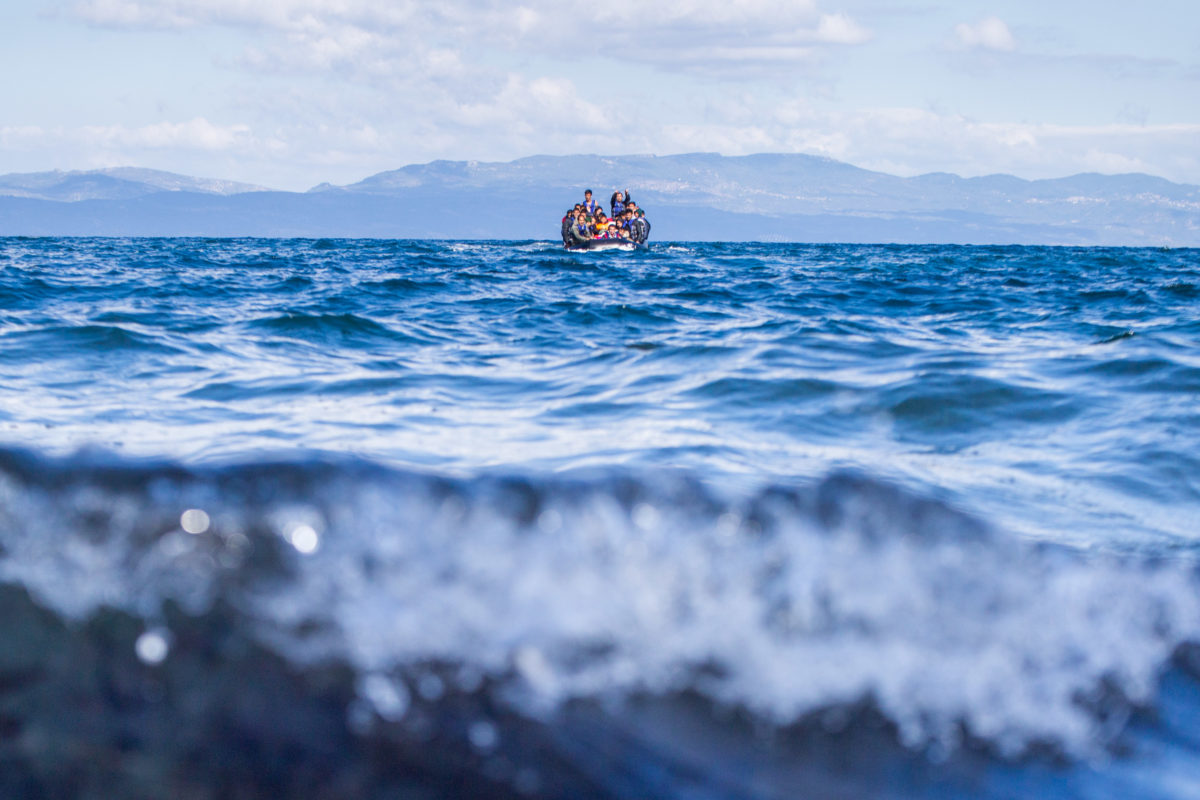Question: Criminalisation of protection seekers in Greece

In order to deter, Greece sentences those seeking protection to long prison terms – covered by the Commission, which refuses to intervene and does not declare itself competent. For example, Hanad Abdi Mohammad was sentenced to a total of 142 years' imprisonment for taking the wheel of a boat and saved 31 people in the process. With other Members, I have asked whether the EU Commission will ensure that Greece complies with international law and will intervene here. This question was not answered by the Commission, white means that the Commission does not intend to do anything.
My complete question on the situation in Greece and the Commission's reply can be found here. here:
My request
Subject: Criminalisation of migrants in Greece
On June 25, 2021, the New York Times published an article titled "He Saved 31 People at Sea. Then Got a 142-Year Prison Sentence." It describes how Hanad Abdi Mohammad took the helm of a boat carrying 33 people who were trying to get to Greece from Turkey and made it to safety. He was then sentenced to 142 years imprisonment for people smuggling, of which he has to serve 20 years, the maximum sentence allowed under the Greek penal code.
The newspaper article points out that asylum seekers who take the wheel after smugglers have left a boat are increasingly being found guilty and sentenced by a court for the purpose of deterrence and intimidation. The non-governmental organisation Border Monitoring has identified at least 48 cases of this kind in Chios and Lesvos alone. Add to this the criminalisation of irregular entry in 2020, when dozens of migrants were sentenced to prison terms at the Greek-Turkish land border instead of being taken to reception centres to establish their identity. Guilty verdicts against refugees as smugglers violate EU asylum rules, according to which refugees are granted the right to apply for asylum.
How will the Commission ensure that Greece complies with EU and international law in such cases?
Answer given by Ylva Johansson on behalf of the European Commission on 18.10.2021:
The facilitation of unauthorised entry, transit and residence is covered by the Smuggling Directive.[1]. Under the Treaties, it is the national authorities, not the Commission, that are responsible for investigating and prosecuting cases of people smuggling.
In the Commission Guidelines on the implementation of the Smuggling Directive[2] clarify that Member States may waive sanctions if the purpose of the activity is to provide humanitarian assistance. Furthermore, the guidelines clarify that legally required humanitarian assistance should never be criminalised. The Commission will continue to be in close contact with Member States' authorities to gather information on the implementation of the smuggling package and, where appropriate, to launch infringement procedures in case of breaches of EU law.[3] It will also report on the implementation of the smuggling package, including the above-mentioned guidelines, in the context of the implementation of the new EU Anti-Smuggling Action Plan (2021-2025).
The Asylum Procedures Directive[4] provides that Member States may not detain a person solely because he or she has applied for international protection. Detained persons should be informed of the possibility to apply for international protection. Furthermore, Member States must provide detainees with timely access to the asylum procedure in accordance with Article18 of the Charter of Fundamental Rights of the European Union.
[1] Directive2002/90/EC (OJ L328, 5.12.2002, p.17).
[2] C(2020)6470 of 23 September 2020.
[3] Communication from the Commission "EU law: better outcomes through better implementation" (C(2016)8600, OJ C18, 19.1.2017, p.10).
[4] Directive2013/32/EU (OJ L180, 29.6.2013, p.60).